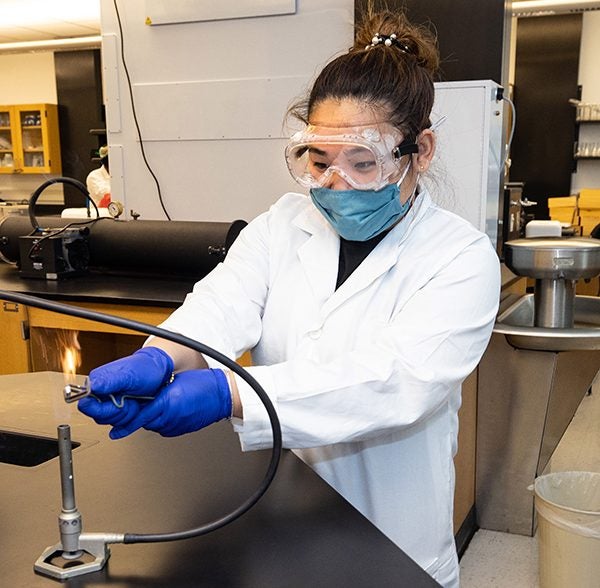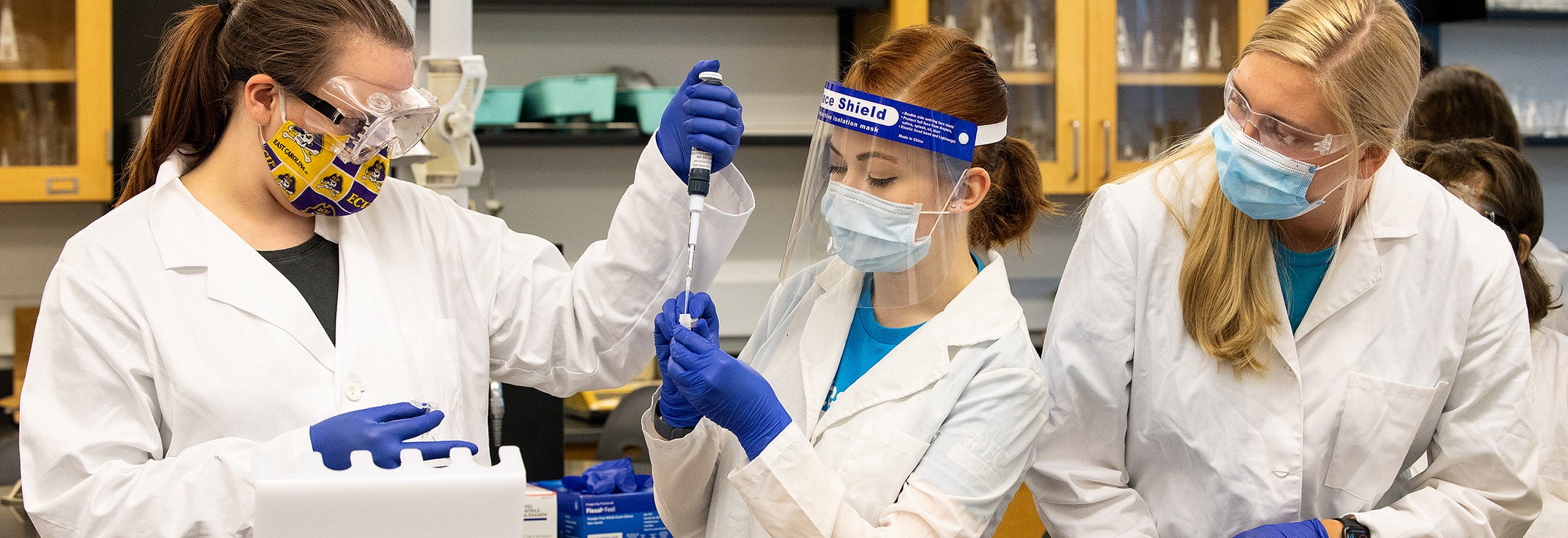THRIVING IN STEM
NSF grant funds 3-year gender equity project
East Carolina University’s ongoing efforts to address gender inequality have received a major boost in the form of a three-year, $1 million — well, $999,074 — grant from the National Science Foundation.
Interim Chancellor Ron Mitchelson is the principal investigator on the project, called THRIVE: Towards Hiring, Resources, Inclusion, Value and Excellence. Stephanie George of the Department of Engineering, Rachel Roper of the Brody School of Medicine, Crystal Chambers of the College of Education, and Kristen Myers of the Department of Sociology are co-principal investigators, and numerous other faculty members have contributed to the pursuit of NSF funding for the project, which dates to 2013.
The NSF ADVANCE program that funded ECU’s project is designed to foster gender equity through a focus on the identification and elimination of organizational barriers that impede the full participation and advancement of diverse faculty in academic institutions.

A student lights a Bunsen burner.
“ECU is committed to equity and diversity, and we have been putting in the work for years to ensure that our campus is as welcoming as possible,” Mitchelson said. “This is something that I believe in and support wholeheartedly, and receiving this grant is not only an acknowledgement of our efforts so far, but will also enable us to do even more to recruit and retain the best faculty members regardless of gender or race.
“I commend the team for its work and perseverance on this project and look forward to putting these plans into action.”
Myers, who came to ECU and joined the project last year, said it is aimed at supporting and improving ECU’s efforts to recruit and retain women in faculty positions, especially in STEM (science, technology, engineering and math) fields. She said it won’t be a one-shot approach, but a systematic effort to recruit allies and transform the culture.
THRIVE is adapted from a project called Advocates and Allies that began at North Dakota State University and has been implemented at other institutions across the country.
“Advocates and Allies recognizes that the people who really have to change the structure are the people who are most privileged by the structure,” she said. “And typically in STEM fields that is full professors who are usually men. So they recruited these usually white men in positions of authority” as allies in the effort to change the culture.
Fortunately, she said, ECU isn’t starting from scratch. “ECU has made a ton of progress over the years,” she said. “We were able to demonstrate that we’re not dealing with a toxic, hostile climate that we have to fix; it’s that ECU has laid this groundwork and we’re ready to roll.”
Having the interim chancellor as lead investigator on the grant shows that ECU is serious, Myers said. She also pointed to the university’s support of BRIDGES, a leadership academy for women; the Chancellor’s Committee on the Status of Women; the Dr. Jesse R. Peel LGBTQ Center; efforts by the ECU Faculty Senate; and the work of the Office of Equity and Diversity as evidence of ECU’s commitment to diversity and inclusion.
“All these offices already exist, and what THRIVE can do is help harness and amplify the work that’s being done, but not take it over,” Myers said.
Roper said raising awareness is a foundational goal of the project because most people are unaware that studies show men and women are still biased against women in STEM.
“If people don’t realize that the bias really exists today, they won’t care about addressing it,” she said. “Studies show that gender bias affects students, faculty, staff, hiring decisions, evaluations, publishing, grants, and tenure and promotion decisions. If we can help people see the effects, they can begin to improve it.”
ECU has 23 STEM departments, she said, encompassing a considerable proportion of the university’s faculty. Part of the project will focus on ensuring that the push for equity and diversity filters down from the university’s strategic plan to the departmental and unit levels by getting department chairs and other leaders involved.
The NSF ADVANCE grant will support professional development for faculty and leadership; provide resources and a network of support to ensure that women are recognized and rewarded for their contributions and afforded opportunities for leadership; and establish accountability practices and incentives.
“We have been laser focused on not giving up because the issues we will address are too important,” said Cindy Putnam-Evans, professor of biochemistry. “We finally put together the right team and persevered in our efforts.”
